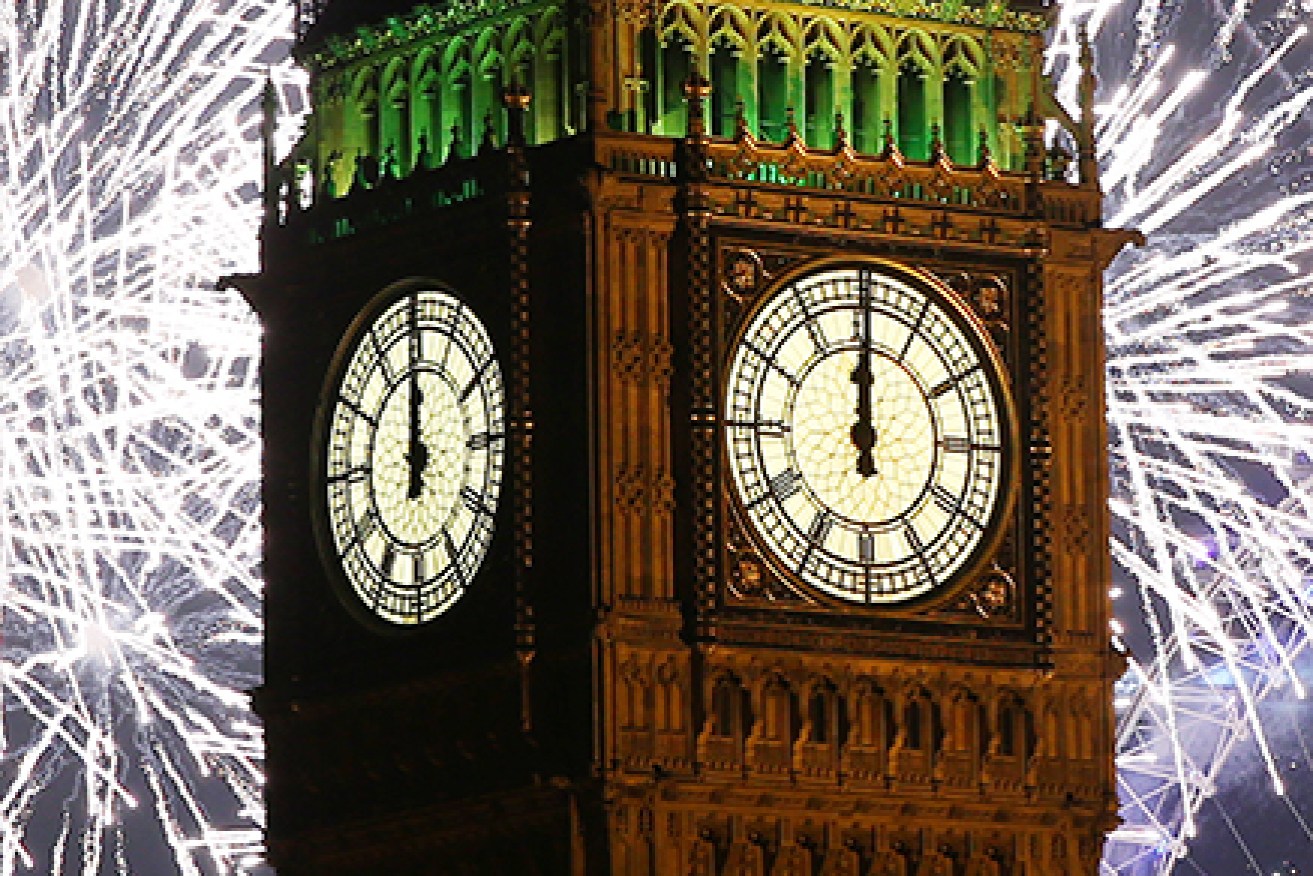Extra second of time to be added to 2015

Getty
The French-based International Earth Rotation and Reference Systems Service said a leap second was to account for the slight differences in time between highly accurate atomic clocks and the rotation of the globe.
“The Earth is slowing down a little bit,” said Nick Stamatakos, the chief of Earth Orientation Parameters at the US Naval Observatory.
• Did Samsung just create the coolest computer ever?
“Atomic clocks keep very accurate time. The measurements are telling us ‘Oh, they’re slowing down’.”
The first leap second was added in 1972, and it will be the 26th time it has been added to clocks in history.
It means the rotation of the Earth will have slowed 26 seconds compared to the time measured on atomic clocks.

Big Ben is one of the most famous clocks in the world. Source: Getty
“They add an extra second to something called UTC (Coordinated Universal Time) in order to make sure the rate of UTC is the same as atomic time,” he said.
It means that at 11:59:59pm on June 30 for one second clocks will read 11:59:60pm.
“For that day [June 30] there’ll be 86,401 seconds, instead of 86,400 seconds. The length of the day for you and I and everyone on the Earth will have an extra second,” Mr Stamatakos said.
Leap seconds are rarer these days than they were when the practice of adding seconds first began.
From 1972 to 1979, at least one second was added every year. Leap seconds were added six times throughout the 1980s. But there will only have been four leap seconds added since 1999.
Mr Stamatakos said it was all down to physics.
“The Earth isn’t as slow [now] as it was in the 1970s,” he said.
“Relative to … the 1970s, we’ve sped up a little bit, but we’re still going slower than atomic time.”
The last time a leap second was added was in 2012. It caused serious issues with websites on the internet, which crashed because of software bugs.
Major companies, including Mozilla, Reddit and Gawker reportedly experienced issues, and there were also problems with the Linux operating system.
Scientists debate benefits, complications of extra second
June 30’s leap second may be the last in history.
The Radiocommunication Assembly and the World Radiocommunication Conference was due to vote later in the year on whether the leap second should be abolished.
A vote was supposed to take place in 2012, but was deferred.
The matter was controversial. Supporters of the leap second argued corrections were needed to maintain accurate time for some branches of science.
Those opposed said it was not worth the energy to change the clocks infrequently, and said it would be beneficial for computing to have a timescale that never needed changing.
A time that never changes would eventually be noticeable by humans, but not by much.
Without leap seconds there would be a slip of two to three minutes by 2100 and about half an hour by 2700.
– ABC








